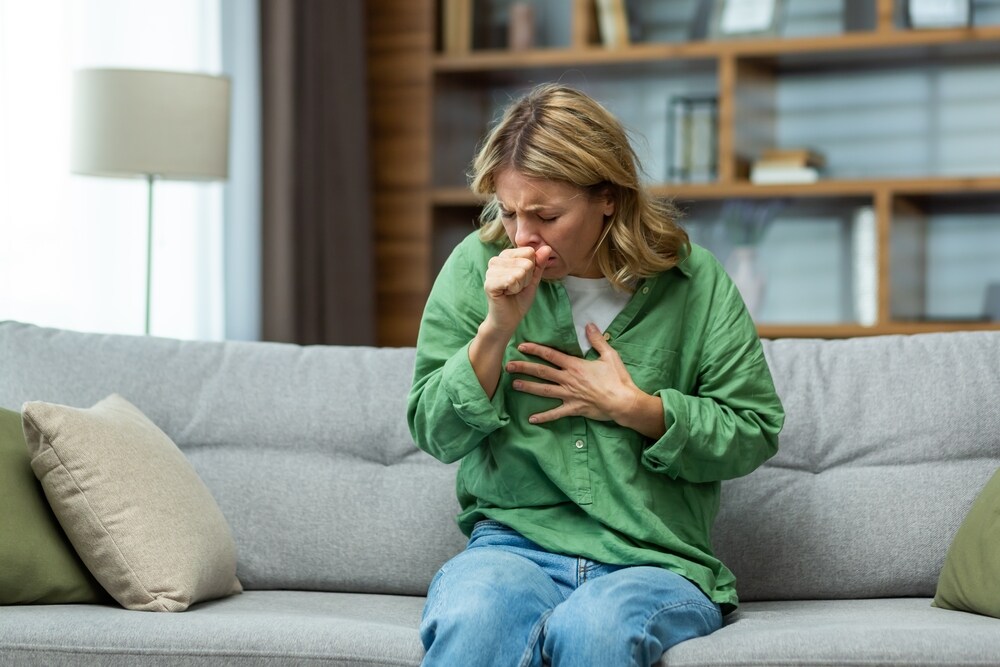Pneumonia: Symptoms, Causes, Diagnosis and Treatment
Written By: Dr. Fabrizio Facchini
Updated On:January 24, 2024

Pneumonia: Symptoms, Causes, Diagnosis & Treatment
What is Pneumonia?
Pneumonia is an infection to the lungs that causes the air sacs (the alveoli),to become inflamed, often involving the airways (broncho-pneumonia). The alveoli and airways may swell and fill with fluid or pus, leading to a cough that produces mucopurulent phlegm, fever, chills, and breathing difficulties.
The severity of pneumonia can range from minor to life-threatening. The most vulnerable groups include newborns and young children, adults over 65, and those with health conditions or weaker immune systems.
Causes of Pneumonia
Pneumonia is a result of your immune system battling an infection in the alveoli of your lung. The infections that result in pneumonia can be brought on by numerous bacteria, viruses, and fungi. Adults are more commonly affected by bacteria, whereas school-aged children are most frequently affected by viruses.
More rarely pneumonia can be of non-infective nature due to an inflammatory process occurring in the lung, as in the case of rare entities like Cryptogenic Organising Pneumonia or Eosinophilic Pneumonia
Symptoms of Pneumonia
Depending on the cause of your pneumonia, your age, and your general health, your symptoms may change. Symptoms may appear suddenly or gradually in bacterial pneumonia and after a few days in viral pneumonia.
Common signs of pneumonia include the following:
- Chest pain, especially as you breathe or cough
- Phlegmatic or mucus-producing cough
- Fatigue
- Loss of appetite
- Fever or chills
- Diarrhea
- Vomiting
- Nausea
- Shortness of breath / Difficulty breathing
Together with these signs, older persons and those with weakened immune systems may also experience confusion or changes in their mental awareness, as well as a lower-than-normal body temperature.
Symptoms of Pneumonia in Children
Pneumonia symptoms in newborns and children can differ from those in adults or they may not manifest at all.
Symptoms, if present, include the following:
- Fever, chills, or flushed or perspiring skin
- Cough
- Difficulty breathing or breathing too fast
- Decrease in appetite
- Lack of energy
- Vomiting
- Restlessness
- Breathing that makes a grunting noise
- Diapers that are less wet
- Pale skin
- Limpness
- Difficulty feeding the child
- More crying than usual
When to see a doctor for Pneumonia?
If you experience breathing difficulties, chest pain, a prolonged temperature of 38 C degrees and above (100 F) or higher, or a chronic cough, particularly one that produces mucopurulent phlegm, see a doctor. Pneumonia can swiftly turn into a life-threatening condition for some older adults, people with heart failure, and those with chronic lung conditions.
Pneumonia Risk Factors
You have a higher chance of having pneumonia if you
- are either under the age of two or older than 65,
- are struggling with lung or heart disease,
- suffer from a neurological disorder that makes swallowing challenging,
- smoke
- are pregnant
- possess a compromised immune system
Pneumonia Complications
Serious consequences from pneumonia can necessitate hospitalization. Some complications include the following:
- Acute Respiratory Distress Syndrome (ARDS) or respiratory failure
- Pleural effusion, which means your lungs would be surrounded with fluid
- Bacteremia or bacteria in your blood, which may lead to organ failure
Pneumonia Diagnosis
A medical professional will inquire about your medical history and do a physical exam to diagnose pneumonia. They'll use a stethoscope to listen to your lungs, and they might also perform or prescribe other testing, consisting of imaging (such as X-rays of the chest), pulse oximetry (measuring the amount of oxygen in your blood), blood testing, or sputum (spit) studies.
Pneumonia Treatment
Treating pneumonia begins with identifying its cause, either bacterial, fungal, or viral, and rarely non-infective cause. When your medical professional is unable to identify the cause, which may happen in many cases, the treatment is focused on managing the symptoms.
Treating pneumonia includes one or more of the following:
- Antibiotics: Antibiotics treat pneumonia caused by bacteria. They can't treat viruses, but a doctor can recommend them if you also have a bacterial infection.
- Antifungal medication: Antifungals can cure pneumonia brought on by a fungus.
- Antiviral medication: Viral pneumonia typically doesn't require treatment and can resolve on its own. To shorten the duration and severity of a virus's illness, a doctor may prescribe antivirals.
- Oxygen therapy: If you aren't getting enough oxygen, a healthcare professional may give you more oxygen through a mask or tube in your face.
- IV fluids: Fluids administered intravenously (IV) are used to treat or prevent dehydration.
- Fluid drainage: If you have a pleural effusion, which is an accumulation of fluid between your lungs and chest wall, a healthcare professional may drain it. Both surgery and a catheter are used for this.
- Non infective pneumonias are usually treated with systemic gloco cortico steroids
Pneumonia Prevention
The strongest defense against pneumonia is vaccination. You can also take routine safety measures to strengthen your immune system to help lower your risk of pneumonia
Vaccines to Prevent Pneumonia
There are two different vaccinations available to protect against pneumococcal pneumonia. These immunizations, such as the flu shot, won't prevent you from all forms of pneumonia, but if you do become sick, symptoms won’t be as severe.
- Pneumovax23® and Prevnar20®, two pneumococcal vaccines, provide protection from pneumonia-causing germs. Each of them is advised for particular age groups or people who have a higher risk of pneumonia.
- Vaccinations against viruses: As some viruses can cause pneumonia, obtaining the flu and the COVID-19 vaccines can lower your risk of contracting the illness.
- Childhood immunizations: If you have kids, ask your doctor what additional shots they need. A number of childhood vaccinations aid in preventing viral and bacterial illnesses that might result in pneumonia.
Lifestyle Changes to Prevent Pneumonia
In addition to getting vaccinated, adopting the following healthy behaviors will lower your chance of developing and transmitting pneumonia:
- Smoking damages your lungs and raises your chance of getting sick. Hence, you are advised to avoid smoking.
- Wash your hands with soap and water before handling food, before eating, and after using the bathroom. As an alternative to soap, use a hand sanitizer that contains alcohol.
- Avoid coming in close contact with others and stop from exchanging stuff with them if either of you has an infectious disease.
- Do some exercise, eat healthily, and sleep sufficiently.
- Have your doctor treat any other medical problems. These conditions may weaken your immune system, increasing your chance of acquiring pneumonia.
- Avoid consuming alcohol in excess.
References
Bartlett, J. G., & Mundy, L. M. (1995). Community-acquired pneumonia. New England Journal of Medicine, 333(24), 1618-1624.
Gereige, R. S., & Laufer, P. M. (2013). Pneumonia. Pediatrics in review, 34(10), 438-456.
Limper, A. H. (2012). Overview of pneumonia. Goldman's Cecil Medicine, 587.
Ruuskanen, O., Lahti, E., Jennings, L. C., & Murdoch, D. R. (2011). Viral pneumonia. The Lancet, 377(9773), 1264-1275.
Meet our doctors from the Pulmonology department
















